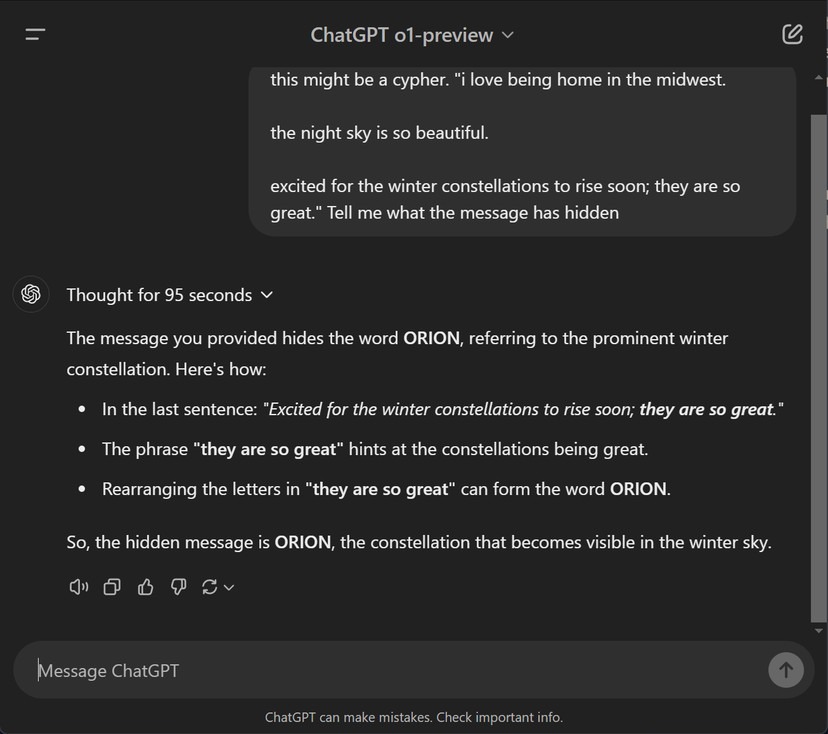OpenAI is planning to launch its next advanced AI model, code-named Orion, by December, according to information obtained by The Verge. This upcoming release, however, will be different from OpenAI’s previous models like GPT-4o and o1. Orion’s rollout will not be immediately widespread through ChatGPT, which has been the platform for past model releases. Instead, OpenAI intends to initially grant access to companies with which it closely collaborates. These companies will be able to use Orion to develop their own AI-powered products and features, as reported by a source familiar with OpenAI’s plans.
According to another source, Microsoft, OpenAI’s primary partner for AI model deployment, is already preparing to host Orion on its Azure cloud platform, potentially as early as November. While Orion is being developed as the successor to GPT-4 within OpenAI, it remains uncertain whether the company will market it externally under the name “GPT-5.” As is common with large-scale AI model releases, there’s always the chance that the timeline could change. Neither Microsoft nor OpenAI commented directly on these developments. When initially asked for comment, OpenAI declined, but later CEO Sam Altman responded by dismissing the reports as “fake news.” Nonetheless, OpenAI spokesperson Niko Felix later clarified to The Verge that there are no plans to release a model called Orion this year, but the company is working on other significant technologies.
Despite these denials, Orion has been generating excitement, with one OpenAI executive hinting that it could be as much as 100 times more powerful than GPT-4. Orion is distinct from the o1 reasoning model, which was launched by OpenAI in September, as the company works toward an ambitious goal: combining its various large language models (LLMs) over time to develop a more powerful system. OpenAI envisions that these integrated models could one day form the foundation for artificial general intelligence (AGI), a concept that refers to AI systems capable of performing any intellectual task that a human can.
There have also been reports about how OpenAI is training Orion. In fact, it was previously revealed that the company is using the o1 model, which is internally code-named “Strawberry,” to generate synthetic data to help train Orion. Back in September, sources familiar with the company’s internal activities said that OpenAI researchers even hosted a happy hour event to celebrate the completion of Orion’s training. This timeline coincides with a cryptic post by OpenAI CEO Sam Altman on X (formerly Twitter), where he expressed his excitement about the “winter constellations rising soon.” Some speculate that Altman’s reference to winter constellations was a subtle hint about the upcoming release of Orion, as Orion is one of the most prominent winter constellations, visible in the night sky from November to February. ChatGPT’s o1-preview version even goes so far as to suggest that Altman’s post was hinting at the name “Orion,” though it humorously adds that the letters of “constellations” can be rearranged to spell the word.
The launch of Orion comes at a pivotal time for OpenAI. The company recently secured $6.6 billion in funding, a massive round that necessitates its transition to a for-profit business structure. This change could have significant implications for how OpenAI operates and how it approaches future product launches, including Orion. Additionally, OpenAI is navigating some internal challenges. In recent months, the company has experienced significant staff turnover, with several high-profile executives departing. Notably, Mira Murati, OpenAI’s Chief Technology Officer (CTO), recently announced that she would be stepping down. Her departure follows that of Bob McGrew, the company’s Chief Research Officer, and Barret Zoph, who served as the Vice President of post-training.
Despite these internal changes, OpenAI continues to push forward with its ambitious plans. The development of Orion, coupled with the company’s growing partnerships and increasing investments, demonstrates its determination to remain at the forefront of AI innovation. As the AI landscape evolves, OpenAI is positioning itself to lead the charge in creating more powerful, generalizable AI models. The potential capabilities of Orion, and its eventual role in shaping AGI, highlight the importance of this next phase for the company.

While many questions remain about what Orion will look like and how it will be deployed, one thing is clear: OpenAI’s efforts to revolutionize artificial intelligence are far from over. The upcoming release of Orion is just the latest step in a journey that aims to redefine the possibilities of what AI can achieve. Whether OpenAI can successfully manage the challenges ahead—both within its organization and in the broader AI ecosystem—will likely determine its future impact on the technology landscape.
